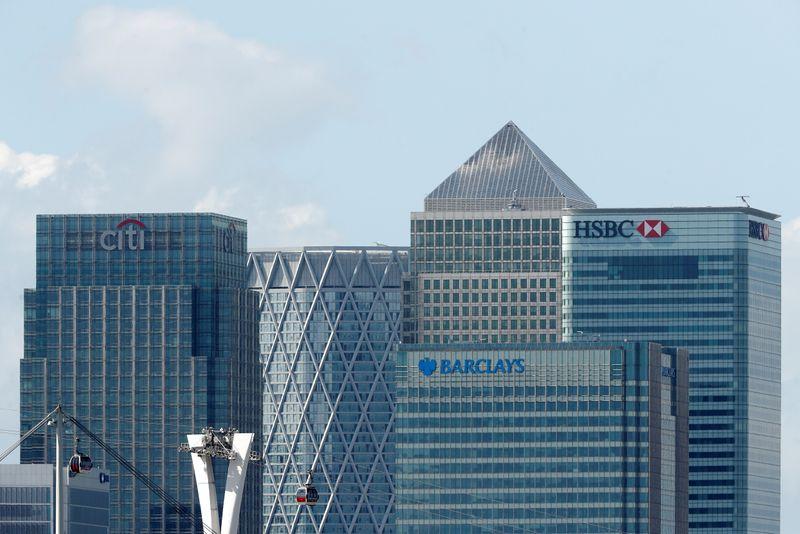Money-Laundering Fight Starts With Transparency
Sep 22, 2020 | Pratirodh Bureau
FILE PHOTO: General view of the Canary Wharf financial district, as the spread of the coronavirus disease continues, in London, Britain on April 6, 2020
Big banks want you to know that reports they processed hundreds of billions of dollars of potentially dodgy funds are old and not necessarily relevant to the current money-laundering fight. That’s only partly true. The leaking of details of thousands of suspicious transactions reveal that financial institutions and authorities could do a lot more to combat the financing of terrorism, corruption and other global ills.
Shares in large lenders like HSBC, Barclays and Deutsche Bank slumped on Monday following reports that many had moved allegedly illicit cash around despite finding red flags. BuzzFeed News got hold of about 2,100 suspicious activity reports (SARs) filed to the U.S. Treasury’s Financial Crimes Enforcement Network (FinCen) and shared them with the International Consortium of Investigative Journalists and other outlets.
The banks’ behaviour is less scandalous than some of the headlines make it sound. Rather than blocking potential criminal transfers, banks are supposed to file SARs with regulators. That’s partly because anti-money laundering systems catch many legitimate transactions – the so-called “false positive” rate can be around 90%, according to one expert. The problem is that authorities are inundated with SARs – FinCen alone has received almost 700,000 this year. The reports pile up in understaffed regulatory agencies, waiting to be investigated – or not.
Banks could improve their systems for spotting money laundering. At the moment they’re based on blunt rules, like whether transactions involve round numbers. An even better solution would be for governments to require companies and individuals to provide total transparency about where cash comes from and ultimately goes. That would make it harder for banks to plead ignorance about the nature of transactions they handle, or argue that competitors will just take the business.
Eliminating complex networks of shell companies is politically tricky, however. More realistic is for different agencies and banks to cooperate more closely. At the moment, a global bank spotting a suspicious money trail spanning Russia, Argentina, Britain and Switzerland would file four separate reports. The different countries would probably investigate separately, and the bank may not hear back from any of them. Such jealous guarding of information creates gaps in which crime thrives, like the terrorist financing detailed in the latest leaks. Banks deserve some of the blame for processing dodgy transfers, but a more effective fight against money laundering starts with cross-border transparency.
